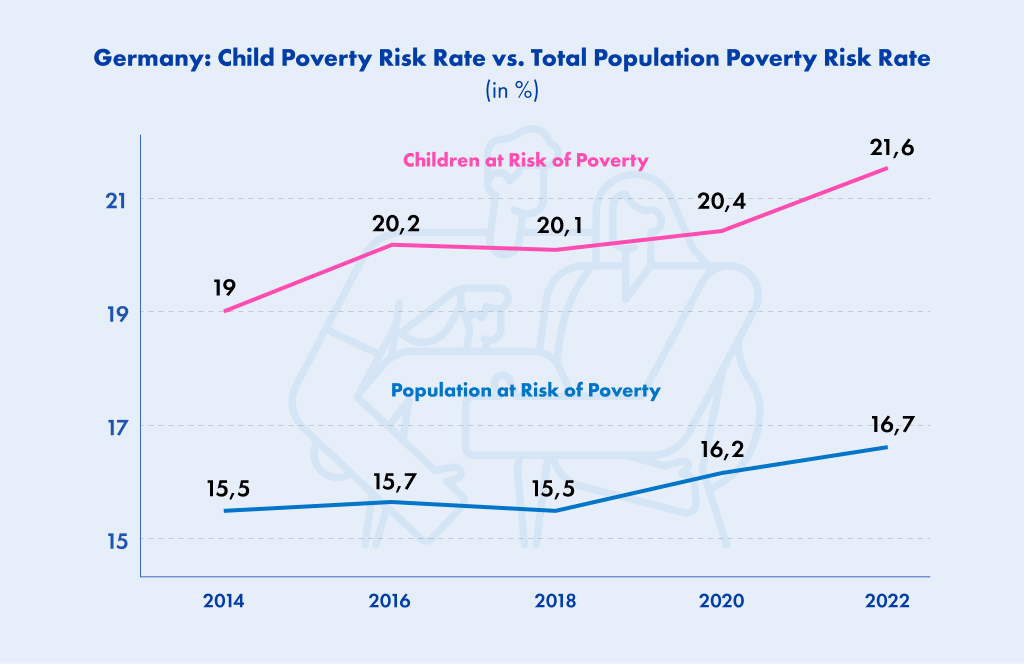Issue #136
Guten Morgen! For anyone who hoped EU and German politicians would roll out the metaphorical media cart before the summer vacation – you’ll be severely disappointed. For those of you who want one more dose of intense political developments: welcome to our last Krautshell edition before we all head on vacation! This week was incredibly lively, so check out our main articles to find out why EU digital consumers are missing out, how Germany’s government tripped just before the finish line, and what Spain has in store for the EU over the next six months. Then, check out Szilvia’s WOOM to learn how not everyone gets a vacation in view of the upcoming EU elections. We’ll be back after the German parliamentary summer break, so until then – stay happy, healthy, and wear lots of sunscreen 😉 Anna Szilvia Threads Tied up in EU Knots As you probably already heard, this week, Mark Zuckerberg’s Meta released Threads, the Twitter alternative that shot to over 5 million users in just a few hours. Everyone’s been buzzing to get their hands on the product, but unfortunately, if you live in the EU you’ll have to wait even longer. In fact, it’s not even certain Threads will be released in the EU’s member states at all. But why? Those in policy circles will likely have heard of the Brussels Effect. The term, coined by Professor Anu Bradford, essentially states that regulation crafted in Brussels inspire legal approaches in other parts of the world mainly due to market mechanisms. These days, the Brussels Effect has taken on a whole new meaning, particularly for tech companies: stay away. Concretely: Google postponed the launch of its AI chatbot Bard in the EU in March, and has been blocked by regulators from releasing it last month. Now, with Meta’s announcement of a delayed launch of Threads in the EU, it seems this trend of tech companies not offering services in the EU is becoming the rule, not the exception. Both companies have blamed “regulatory uncertainty” for why their services halt at the EU’s borders. Specifically, these companies cite obligations & prohibitions under the Digital Markets Act in regards to data sharing across platforms or data protection concerns under the General Data Protection Regulation. Some see these developments as the canary in the coalmine as for how recent & upcoming tech regulation will de-facto affect innovation (or lack thereof) in Europe. Not for EU lawmakers like Christel Schaldemose or Dita Charanzonva. Following Meta’s announcement, both lawmakers followed the same line of reasoning: not having Threads in the single market is a positive thing, because it shows EU regulation works. We’ll let you know when there are further developments. Germany’s Heating Law: Fumbled on the Goal Line Who doesn’t know the feeling? It’s the night before submitting your final paper in a course. The deadline has been looming for months, and yet you left everything until the last minute. Now, let’s raise the stakes from university essay in Literature 101 to law that decides how millions of homeowners will heat their homes – and voilà, we have the drama that occurred in the German Bundestag this week. As we informed you about a few weeks ago, heating has become the hottest topic in Berlin political circles over the past few months. In short: Green Minister for Economic Affairs wants to phase out oil and gas heating systems. For months, roadblocks were erected to block the smooth passage of this law – both from inside and outside the governing coalition. Habeck and co. desperately wanted this law to pass before the Summer Break – which starts on Friday, July 7th. Due to the intense negotiations on the details of the bans and allowances, there was very little time to work those agreements into a legal text. Nevertheless, Habeck rolled on. Given the complexity of the topic and all the (new) special exemptions, the end product was over 100 pages of amendments to the draft law. Many lawmakers felt hoodwinked – they now had less than a week to review this critical piece of legislation before having to vote on it in plenary. In stepped Thomas Heilmann from the opposition CDU. Heilmann submitted a complaint to the Federal Constitutional Court, that the democratic due process was not being followed. This Tuesday, the court agreed with him, stating his rights of participation as a Parliamentarian were violated by the government rushing the bill through the Bundestag. Now, the bill will be revisited after the Summer Break in September, putting a huge loss in Habeck’s book. We’ll keep you updated. Spain Takes the Wheel in the EU Council Presidency The EU Council presidency baton has been passed from Sweden to Spain, and it’s time for Spain to take the driver’s seat. They have the power to set the agenda but also have to play the role of an honest broker in EU policy negotiations. Spain has big dreams for their term. They want to revitalize the EU by reindustrializing it and boosting its autonomy. Think strategic industries, cutting-edge technologies, and trade expansion with super-strong supply chains. But that’s not all! Spain has its sights set on Latin America too, hoping to speed up the ratification of the EU-Mercosur free trade agreement. With their excellent relationships in the region, they’re aiming for a breakthrough that will have everyone cheering. But hold on tight because there’s more excitement coming your way. This presidency is a crucial one as it’s the second to last before the European Parliament election next summer. They need to wrap up major policy projects like the AI and migration act before the election campaigns kick into high gear. It’s a race against time to find those elusive compromises before they vanish like socks in the washing machine. And if that’s not enough nail-biting drama, Spain itself is facing a general election on July 23rd. Polls are suggesting a possible twist of fate, with the pro-European social democratic government possibly losing to the conservatives. Imagine a government change in the middle of this crucial council presidency! To make things even spicier, the far-right Eurosceptic VOX party could join forces with the conservatives. The impact on the EU? Well, that’s a cliffhanger we’ll have to wait to find out. So, stay tuned, grab your popcorn, and get ready for the next show in Europe! Source: Statista NO VACATION FOR URSULA I am just on the way home from a pleasantly sunny Brussels. The few hours I have spent in the EU’s capital defines what is on my mind this week. While the increasingly lamed coalition in Berlin debated cutting the financial support of young parents (because why not further deteriorate the chances of having kids where record number of qualified workers are missing) and even suffered a historical setback from the constitutional court (you have read that above, I guess), I am just thinking about Ursula… …von der Leyen and the European elections next year. Uschi, as some Germans refer to her in a playful but rather unrespectful way, has a pretty solid situation at the head of the European Commission, one may think. She navigated Europe through the COVID pandemic, was firm on the Russian aggression against Ukraine and gave quick responses in the energy crisis. All this while causing remarkably little mess (ok, a bit fucked up with vaccines at the beginning, but who remembers that, right?!). But none of this really matters when it comes to the European elections next June. In 27 member states over 400 million people will vote on their party preferences for Europe. And while some sort of gentlemen’s agreement (a.k.a. Spitzenkandidatenprinzip) does say that the lead candidate of the most popular party should become president of the European Commission, this is not always the case. Last time, in 2019, the EU heads of state and government decided not to take the lead candidate and presented von der Leyen instead. Long story short: no summer break for Ursula. She needs to actively collect supporters, especially in her own European People’s Party (EPP), which is increasingly irritated by the side effects of the European Green Deal – President von der Leyens biggest and most successful project. Two weeks ago, the EPP even called for a “regulatory moratorium” on the Green Deal as its voters seem to be overstrained with energy prices and red tape going along with it. “All parts of society must be able to embrace the transition” – so the argument. So, how will all parts of the EPP embrace Ursula von der Leyen until June 2024? That is the question that the three-times German cabinet minister, a mother of 9, needs to give answer to. Maybe we will have a merkelian déjà vu and see how von der Leyen slowly embraces the changes in voters will and becomes the biggest critique to herself? We will see. Fact is – she will win anyway. The election of a new NATO secretary general was postponed – the alliance is basically providing Ursula a backup. Issue #136


FIRST, SOME SOLID INTEL:
TAKE A BREAK, GIVE YOUR EYES A REST.

LONG STORY SHORT:
WHAT’S ON OUR MINDS:





